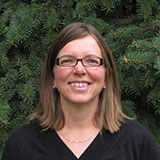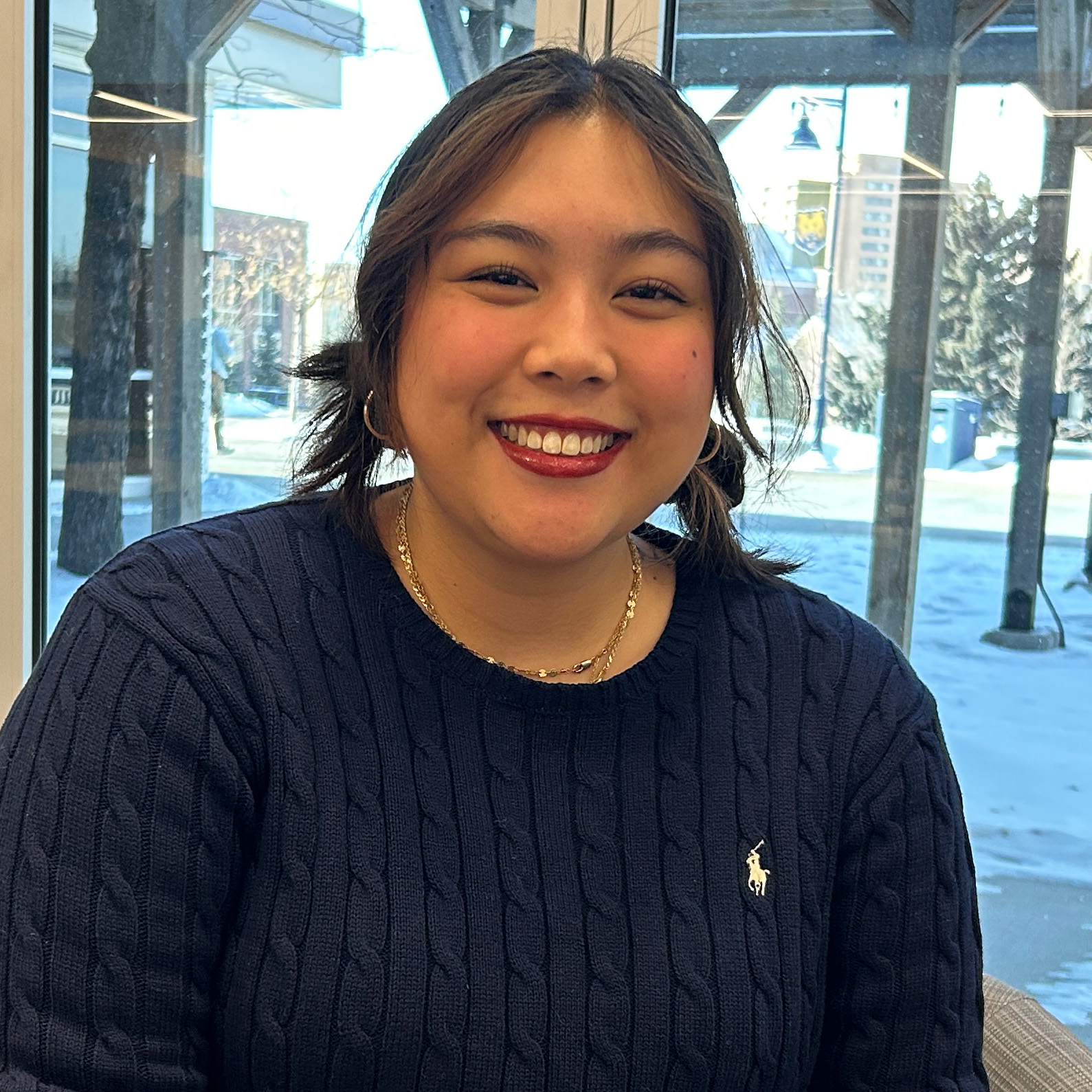
Dr. Dani Brittain discusses her research on physical activity among women as well as the importance of public health programming in communities.
Can you give a, maybe an elevator, actually, since this is public health, let's not do elevator. Let's do a stairwell pitch. What is public health?
Oh Gosh. Public health is everything and everything is public health. And so when you think about, if you want to advocate for a policy change, and I'm thinking of HB 1161 right now in terms of physical education, quality, physical education in schools in Colorado. If you're passionate about something, then you're going to advocate to get a policy change. So that's public health. Public Health is eating right. It's being physically active, it's learning how to go into communities that maybe you're not a member of and work with them on engaging in healthy behaviors. It's behavioral health. It's understanding information about the opioid crisis that we're experiencing in this country. It's about understanding depression. Gosh, public health is everything. So if you're interested in the environment, if you're interested in what's in your water, we know the big cases of Flint, Michigan in the past few years. What's in your water? What's happening in terms of fracking, in Colorado, oil and gas industry, all these pieces are public health and so public health is everything and everything is public health.
It's well said. You're, you're bringing how it's very people oriented, but people in the environment as well. Yeah. And their interactions as well. So I'll, it's very dynamic and what public health is.
Yeah. And it's on the population level, so we aren't always focusing on just individuals on their own, which that is still health promotion and public health. But we, we look at this from a larger perspective and we also think about how to prevent illness, disease, etc, trying to make changes prior to, to a full blown outbreak of something
And you said, you mentioned physical activity. Would you consider that your specialty?
Absolutely. I am a kinesiologist. That's what I, I call myself. I focus on the social psychology side of why people are physically active or not. And throughout my career I've worked with underserved populations of women, mostly on understanding what are their barriers to being physically active and then how do we design programs to address these salient barriers by being in the community, working with community partners. And yeah, but yeah, definitely my passion. I was an athlete in college and from there, I felt I was privileged. I feel I had this opportunity to engage in something so wonderful. And then I had family members who are not physically active. And I've just watched a lot of people over the years struggle being physically active, whether it was a really difficult experience as a freshman in high school with PE, or maybe some other discrimination people experience, not having the fiscal literacy to understand how to move and be active for the rest of their lives. So all these things combined together help to create my passion for physical activity.
Based on your focus on women and physical activity, what have some of the barriers been from some of your research?
So it depends on the population. Some of the ones that I just mentioned are pretty common across all populations. So having a difficult experience in physical education when they were younger. Women often are not comfortable going into say, a weight room because of the lack of knowledge and just feeling a sense of not belonging within the weight room, which we know is not true. Women, all women can go into a weight room but educational programming is really helpful in those situations to increase the self efficacy of women to know what to do with the weights or use the machines. Other barriers, having children, typical things, inclement weather, things like this.
But if we break it down into different groups of women, I have done research with lesbian women and there's often been some pieces of discrimination or stigma associated with being active. For instance, often there are not same sex partner, family memberships at fitness facilities, but in sports sociology literature, there's this notion that women don't belong in sport and often one of the ways that they've tried to keep women out of sports, so social control, is to say that women in sport or who are athletes are lesbian. And so then how this relates to the barriers to physical activity is that oftentimes a lot of lesbian women think that you need to be really skilled and athletic to be physically active and involved in sports. And so I, when I was doing research, they'd say, 'Oh, you know, I'm not involved in sports because, you know, I just, I'm not that active. And so I don't feel like I'm a real lesbian because I can't participate in sports.' Isn't that interesting?
So it's an identity connection with the idea that you have to be physically, almost fit as a lesbian to participate in these sports.
Yeah. And this, so because social control of keeping women out of sport, this is a sociology of sport literature, to keep women out of sport. One of the social control pieces has been to label female athletes as lesbians. So this equates though too, a lot of women saying, Gosh, you know, I haven't participated in sport, which is only one form of physical activity. But I haven't participated because I don't feel like my skills are good enough because there's this notion that all lesbians are so physically active and good at sports and they're not.
And when we define sport, we're talking usually something where there's teams involved. And because I think of also physical activity as just running or even just a walk around the block is physical activity.
Right. Yes, exactly. So sport is only one kind of aspect of being physically active. So you're absolutely correct. So other barriers though at digressing, back to your original question. Women with chronic pain, that's who we're focusing on right now. And we've targeted women. A lot of my research is focused on women with arthritis and those women, a number of things, whether they have high pain anxiety, there's, they have low pain acceptance. So what we know is that women who have chronic pain, who are more likely to accept that they have pain and kind of work through that or more likely to be active. So it's interesting in terms of some of these cognitive pieces related to getting people to be more active. So we'll design programs to say, okay, we want to really educate women on the fact that yes, we know you're going to have pain, but let's talk about ways in which to work through this pain. Obviously, if it's not a, a serious issue, but with chronic pain, oftentimes there's neurological changes to then emphasize that the pain is happening. And so we have to be able to intervene and say, pain, you're going to have some level of pain and that's okay, but let's work through this and try to be active and move forward. So currently I'm part of a team where we train exercise providers, so personal trainers or people who work in community settings that are certified to be working with people on physical activity. But we train these exercise providers to learn how to work with people who are living with chronic pain and then hopefully the people with chronic pain than adhere to a program of physical activity because the rates of being physically active are so low.
Especially in that population. And so it sounds like you have identified those barriers like chronic pain as to them not mean physically active, lowering that barrier by basically communicating properly that hey, this is part of it, You are going have to go through some pain in order to actually get a little better. I shouldn't say a little better. Hopefully a lot better.
Yeah, exactly. Yeah. And then training the people that they work with. So we, we interviewed, did focus groups with people with chronic pain and said, who do you want to receive information from regarding physical activity? And they said, exercise professionals. And so now we're training those exercise professionals who often have stigma in terms of, oh, okay, I don't want you to work through that because you're experiencing pain. We say, okay, let's back up. It's okay to work through some situations with pain and get you to be physically active. So we're working with exercise professionals to understand what to do, how to think about pain so that they can then relay that information to people living with chronic pain.
Public Health is working with both parties.
Correct.
My name is Danielle Britain. I go by Danny. I'm an associate professor and the chair of the Department of community health education, but I also have a unique title - I'm also the campus director for the Colorado School of public health here at UNC. And this is a collaboration between the Anschutz medical campus and the University of Colorado System, Colorado State University, and then here at UNC.
the Colorado School of public health is comprised of the three universities and each campus has different concentrations for a master of public health degree. So here at UNC we have a master of public health and community health education. And then we also have a global option with that as well. But in our degree, you really learn how to design, implement, and evaluate programs that you can work with community to implement and address public health issues. What's really cool about our program here is that we really get you out into the community to work with community agencies and members to understand what are their needs and how you, as a master of public health student, can contribute to changing and impacting health within these communities. And sometimes you're not a member of those communities. So we try to help you learn how to also engage with communities when you're not a member, but really getting that hands on experience on how to design, implement and evaluate programming and knowing that you're not the expert, but the community is the expert and you're working together to address issues. So if people are interested in a master of public health they should certainly reach out to me and I'd be happy to give information and talk to you about all the great classes and the great work that we're doing and see if you think public health is the path for you.




